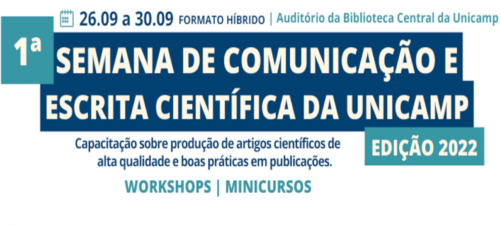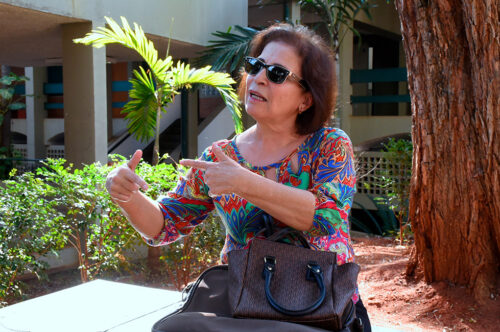The British Council offered the course “Researcher Connect: Scientific Communication Skills for Researchers” at the Faculty of Technology in Limeira between the 13th, 14th and 15th of February. After the experience of conducting a pilot course in 2015 for professors and postgraduate students in the Humanities, Unicamp was again selected to host this course.
Dedicated exclusively to professors, this second edition had 19 professors: nine from the Faculty of Technology (FT); seven from the Faculty of Applied Sciences (FCA); and three from the Faculty of Dentistry (FOP).
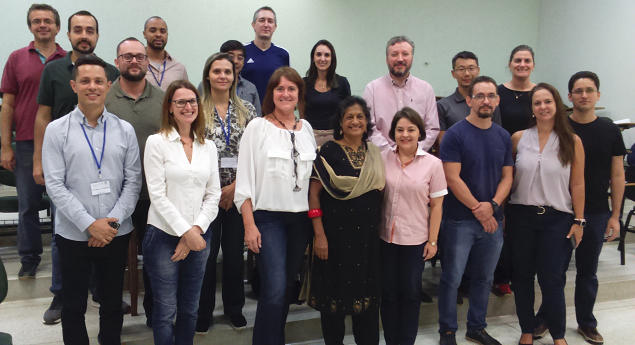
Unicamp professors who participated in the scientific communication course.
Co-funded by the Research Support Foundation of the State of São Paulo/FAPESP, the course offered four modules: 1) Know your audience; 2) academic writing; 3) persuasive proposals; 4) Presenting with impact.
“We chose these modules because they are topics that will help researchers a lot, especially those at the beginning of their careers” comments Prof. Vitor Rafael Coluci from FT, local coordinator of the course at Unicamp.
Prepared with the technical assistance of Marcelo Raimundo da Silva, from Espaço da Escrita/Pro-Rectory of Research, and technical support from Thiago Pinheiro Rosa, from the FT Research Secretariat, the proposal was designed to help mainly FT and FCA professors , Unicamp units that are completing 10 years of teaching in 2019.
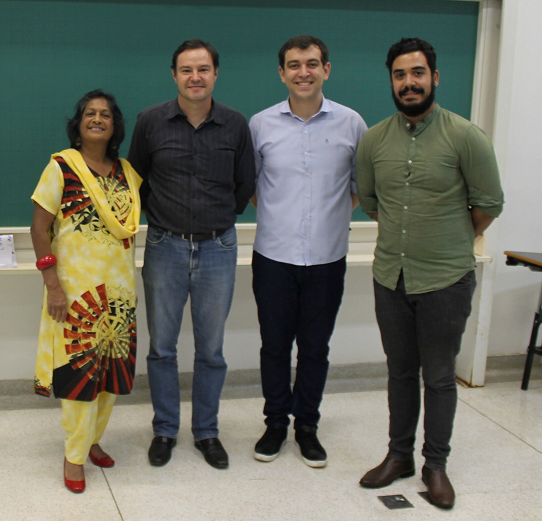
British Council Instructor, Dr. Stella Mascarenhas-Keyes
and the course organizers: Prof. Vitor Coluci (FT), Thiago Pinheiro (Secretary of Research/FT) and Marcelo Raimundo da Silva (Espaço da Escrita/PRP).
For Prof. Cínthia Pereira Machado Tabchoury from FOP, the permanent updating of professors in this subject is of paramount importance, even for those who have been working in teaching and research activities for many years: “I think this course is very important and I am very pleased to have this opportunity, because we can improve both our writing and our presentations, improve in a formal and technical way. Obviously, this will impact our undergraduate and graduate students, in the sense of how we researchers present ourselves and take Unicamp to other institutions and contexts.”
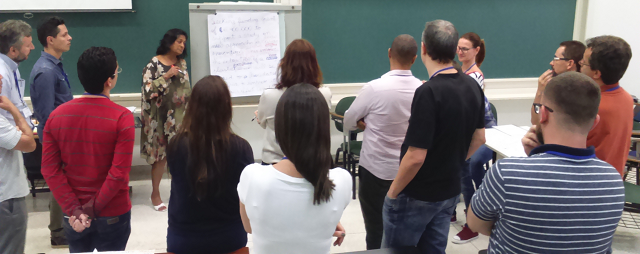
Techniques to improve scientific writing were worked on during the course, for example, during revisions of texts prepared by the participants.
According to Prof.ª Lubienska Cristina Lucas Jaquiê Ribeiro from FT, the course is of enormous relevance, especially for new professors at the University: “I believe it is very important for us researchers because, often, we do not identify the best way of writing or oral presentation to a specific audience. And it is even important to convince the development agencies, so that we can achieve a greater return on funding for scholarships and research. I think a course like this is fundamental, not only at the beginning, but at any stage of a professor's career, so that he feels a little safer and more confident when it comes to disseminating his research”.
For Prof. Larissa Galatti from FCA, the course can contribute to expanding Unicamp's regional and international participation: “I think this initiative is very important, especially within the University, for the stimulus it gives us to internationalize scientific production. We are having this opportunity to stop for three days so that, in fact, we can study a little better, think about the skills that we already have and need to develop and, from there, be better able to disseminate what we are already doing within the university , to also access other universities, mainly in the sense of expanding scientific exchange and dialogue with the community. 🇧🇷
The teachers' impressions and opinions coincide with what the course instructor thinks, Dr. Stella Mascarenhas-Keyes "Communication Skills in English are important in any country, especially in countries in which people do not have English as the first language. It is important to acquire the skills because English is an international language, whether we like it or not.”
The instructor also points out that this type of training seeks to reduce possible disadvantages for researchers who do not speak English as their mother tongue: "The important thing about Researcher Connect is that it gives the opportunity to develop the skills to be on the level playing field with other international researchers. So if they are collaborating internationally, with researchers from the UK or from the US, for example, where English is the first language, they should feel at the disadvantage, they should not feel when they are developing a proposal, or discussing a proposal, or presenting a proposal, that they are at a disadvantage from those whose English is a first language. They need to feel that they are equal, so that their ideas are put forward fairly enough, so other people can use them… that they can write an academic paper as the first author… very often they don't quote themselves as the first author , even though they've done all the research, because they can't write in English, as well as a native English speaker.”
The course also developed teamwork skills in the teachers: “They are from different academic disciplines and they are put to teamwork situations, where they work with people from different academic backgrounds. It is a great challenge. Some seem to be very shy, not because they are not good professionally, but because they are not confident in English. However, I know by experience, by the end of the course, their confidence will improve to a great deal”, comments Dr Stella.
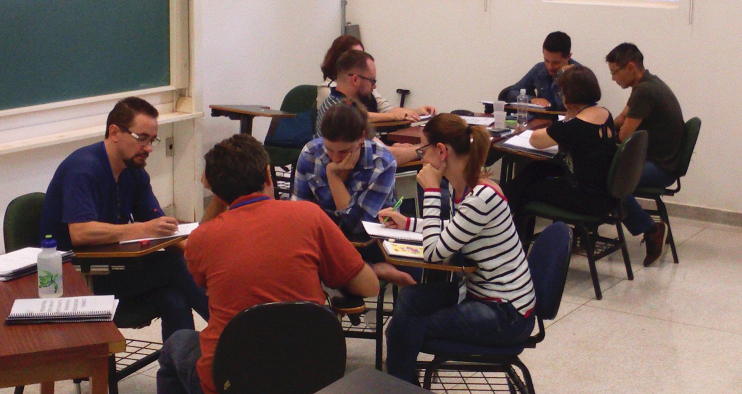
Discussions and group work were constant during the course.
“We now hope that each participant can share the knowledge acquired in the course with their advisees and other professors, just as we try to do here” comments Prof. Vitor who, after training on academic writing funded by Unicamp in 2016 at the University of Bath (UK), has also been working in scientific writing courses (visit the website of Prof. Victor here).
Report and photos: Prof. Vitor Coluci and Espaço da Escrita/Dean of Research



